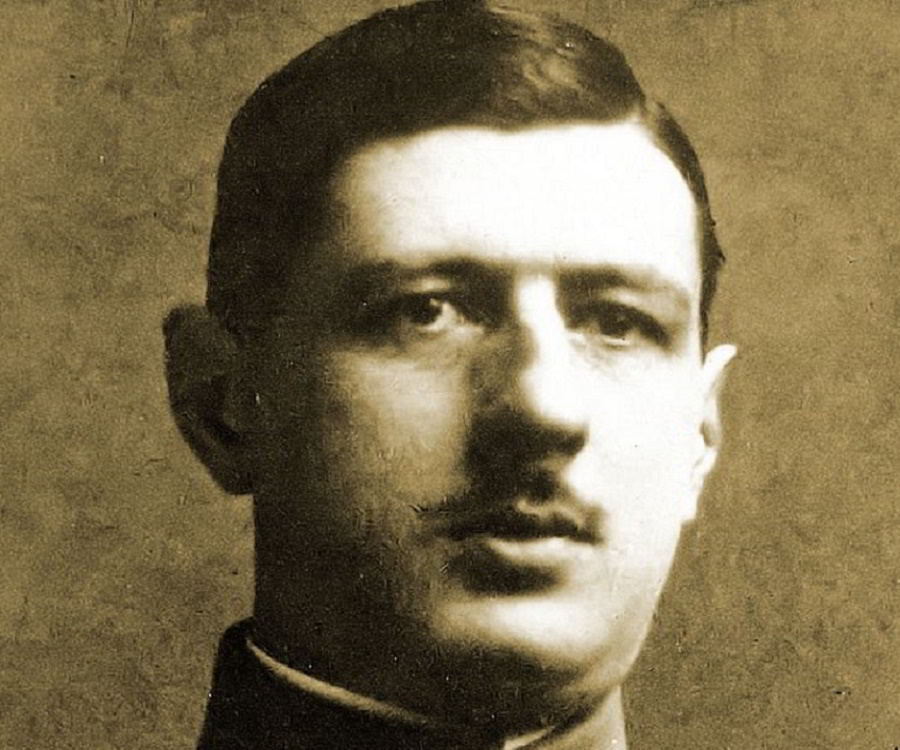In Vers l’armée de métier (1934), Charles de Gaulle explains, with a formula that has remained famous, that general culture is the real school of command. According to him, it is necessary to train the « power of the mind », and the « intellectual and moral reflexes of leaders ». But in this work, he hardly constructs his thought except on a few pages.

He had been much more prolific in Le fil de l’épée (1932). We will use these developments to understand his idea. We will also explain what qualities he thinks a military leader should possess.
Intelligence, instinct, general culture
For Charles de Gaulle, intelligence and instinct are both necessary to action.
War is such a complex domain, involving so many immaterial forces, that it is difficult to grasp it entirely by intelligence. However, even if it does not bring certainty, the intellect reduces the field of error. It brings intelligence, organization, knowledge of its strengths and weaknesses. It “prepares the conception of the action but does not give birth to it”.
Intelligence is complemented by instinct. It is through instinct that man “perceives the reality of the conditions which surround him and experiences the corresponding impulse”. Instinct is a shortcut between the sensible world and action. “Great men of war have always been aware of the role and the value of instinct. »
It is general culture that forms intelligence and instinct. It allows one to structure its thoughts and prepare its mind for decision-making, by clearing the field of possibilities. Substitute to experience, it is also much broader. It is for this reason that according to de Gaulle, « the true school of command is therefore General Culture » , and that « at the bottom of Alexander’s victories, one always finds Aristotle ».
However, general culture is not everything. A military leader needs many other qualities.
Authority
After conception, decision. Authority and courage, moral qualities, complement intelligence and instinct, intellectual qualities, in the great leader.
Decision-making is a moral process, not an intellectual one. It requires courage. Courage is not given to everyone, because of the serious consequences that the decision to be taken may entail. The mind capable of decision must also be accompanied by authority, which is the faculty of having « a grip on souls ».
Authority itself implies « prestige« . Prestige (here similar to charisma) is an innate gift, but certain aspects of it can be developed .
To work on his prestige, the commander must remain mysterious, which requires distancing himself from its subordinates. But this prestige is not inaccessibility, it is the reserve of the soul, of gestures and words, the sobriety of attitude and speech. One must feel in the silence of the leader the contained flame. It is an attitude of a king in exile.
But to maintain what must be called “majesty” (the term does not appear in the book), the leader needs a goal that connects him to greatness. However, greatness represents a weight that cannot be supported by everyone.
Finally, to the virtues of intelligence, instinct and prestige, the great leader has to add character .
The character
Character, « virtue of difficult times « , is the ability to leave its mark on facts.
The man of character inspires, decides and assumes. He has the “ passion of willing”. He is firm, but benevolent, assumes the failures and redistributes the glory. In times of peace, such a man will be perceived as proud and unruly, and he will suffer for it. But let difficulties arise, and they will naturally push him to the fore.
*
If “the true school of command is therefore General Culture”, it is because that it prepares the commander for rapid and fair decision-making in the face of an unforeseeable and necessarily confuse situation . It develops the instinct which, alone, makes it possible to feel the direction to give to its choices. But if the general culture forms the instinct of the military leader, the latter must be accompanied by other qualities such as intelligence or authority, both moral and intellectual.
“All great men of action were meditative”
CHARLES DE GAULLE, LE FIL DE L’ÉPÉE.
“The real school of command is therefore general culture. Through it thought is enabled to exercise itself with order, to discern in things the essential from the incidental, to perceive the extensions and the interference, in short to rise to that degree where the ensembles appear without prejudice of nuances. Not an illustrious captain who did not have taste and sense for heritage and human spirit. At the bottom of Alexander’s victories, one always finds Aristotle. »
CHARLES DE GAULLE, VERS L’ARMÉE DE MÉTIER.
*
Also read Lucien Poirier’s Comprehensive Strategy.

